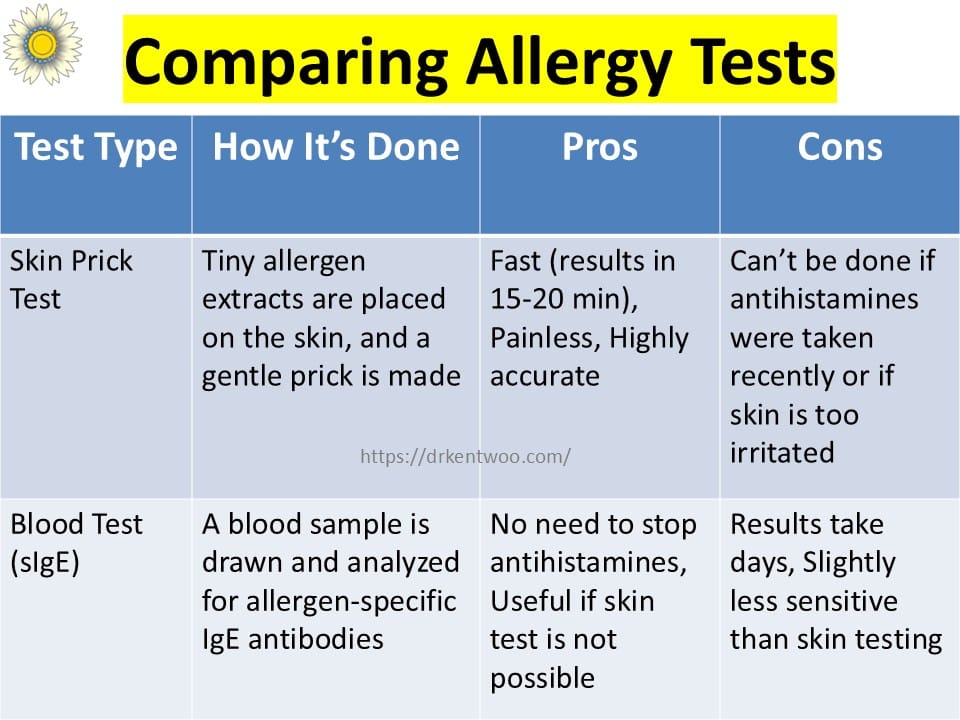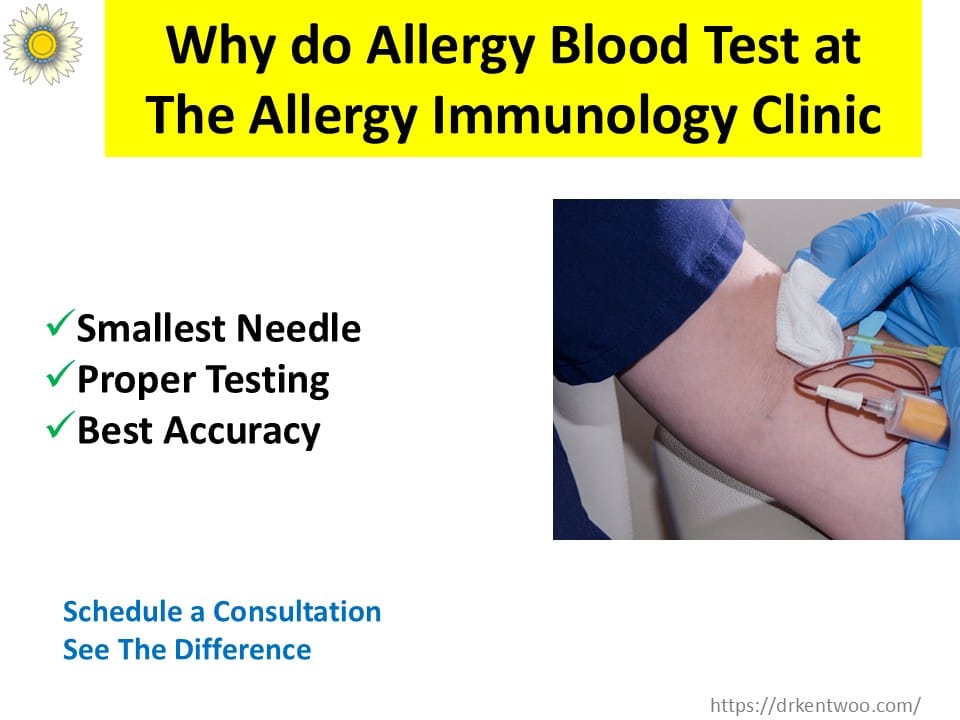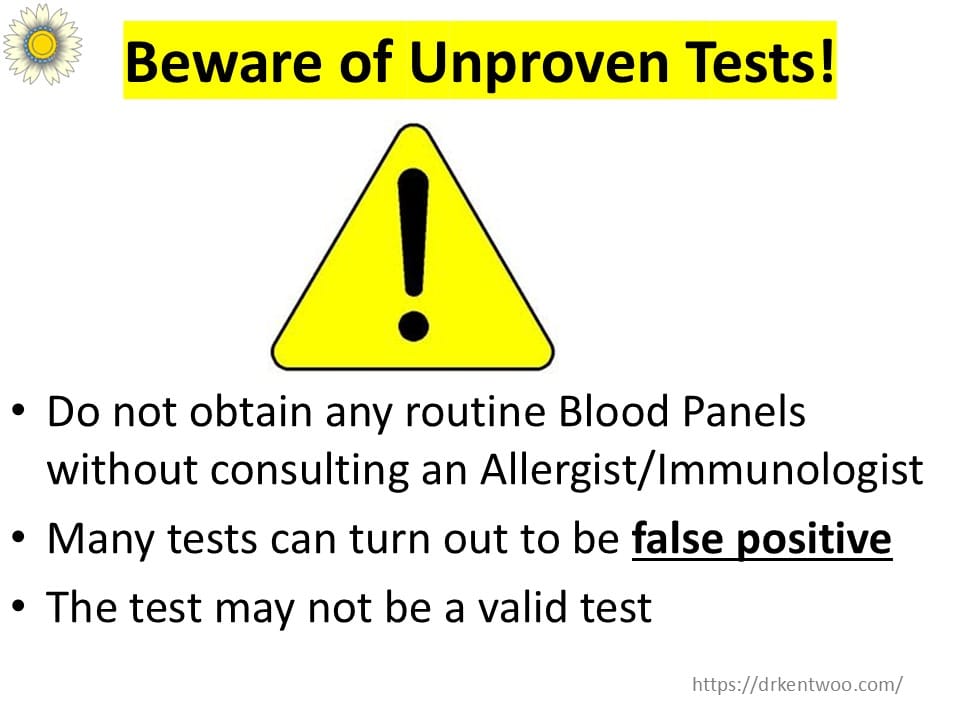Understanding Allergy Blood Testing at the Allergy Immunology Clinic
When it comes to allergy testing, accuracy matters.
Quick fixes and random internet panels do more harm than good.
Let’s cut through the noise. This guide walks you through allergy blood tests (sIgE): what they tell us and what to expect.
Looking for no-nonsense allergy blood testing in Kuala Lumpur?
You’re in the right place — and I’ll show you how we handle it at the clinic.
Skin prick test vs blood test — which should you pick?

Short answer: both have a role. Which one we choose depends on the patient.
We usually prefer a skin prick test for kids. It’s fast. It’s accurate. Results are ready in 15–20 minutes. No fuss.
A blood test (sIgE) is preferred when:
- you cannot stop antihistamines;
- severe eczema covers the test area;
- you’re already having blood drawn for other medical reasons — why do two sticks?
Both tests are tools. Your history is the map that tells us which tool to use.
What is an allergy blood test (sIgE)?
It measures specific IgE antibodies to particular allergens — pollen, dust mites, shellfish, insect venom, and more.
Important nuance: sensitization ≠ clinical allergy.
A positive result is a clue. Not the whole story.
What to expect during the blood test

- No fasting needed.
- Antihistamines do not interfere with allergy blood test.
- A small blood sample is taken from a vein — we use the smallest butterfly needle for comfort.
- No downtime. Go back to life.
- Results usually arrive within a few days to a week. For selected tests, we can fast-track results in hours.
Quick real-world note: a mum once brought her child who was terrified of needles. With a tiny butterfly needle and a calm approach, we were done in under a minute — and both mum and child left smiling. Little moments like that matter.
How we interpret the results

A “positive” sIgE means sensitization — your immune system has made antibodies to that allergen. It doesn’t always mean you’ll have symptoms when exposed.
- Some people test positive but never react.
- Higher sIgE levels can raise the likelihood of reacting — but it’s not absolute.
- We always interpret results in the context of your symptoms and history.
For suspected food allergy, the definitive test is often the oral food challenge — the clinical gold standard. Tests guide us; challenges confirm.
Not all allergy blood tests are equal

Labs and methods differ. Accuracy depends on equipment and calibration. We use validated, science-backed assays and avoid unproven tests that confuse patients.
Do not rely on:
- ❌ IgG / IgG4 panels — not diagnostic for allergy.
- ❌ Alcat-style “sensitivity” tests — unsupported by allergy specialists.
If it sounds too good to be true, it usually is.
After the test — what happens next?
Once results are in we will:
- Decide if avoidance is truly needed.
- Recommend an oral food challenge when appropriate.
- Monitor changes over time — some children outgrow allergies.
- Offer treatment options: education, immunotherapy where indicated, and supportive measures.
- Manage related conditions — eczema, asthma, allergic rhinitis — because they affect each other.
If an oral food challenge is passed, we encourage regular inclusion of the food to maintain tolerance.
Quick FAQs
Is an allergy blood test accurate?
It accurately detects sensitization, but it isn’t a perfect predictor of clinical reaction. Results must be matched with symptoms and history.
Skin prick or blood test — which is better?
There’s no single “better.” We pick the test based on age, medications, skin condition, and clinical context.
How long until I get results?
Typically a few days to a week.
Can I get same-day allergy blood test results in Kuala Lumpur?
Yes — in selected cases we can fast-track results. Call ahead to confirm availability and whether the test you need qualifies.
Do you use IgG tests?
No. IgG/IgG4 tests are not reliable for diagnosing allergies and are not used in our practice.
Will my child outgrow their allergy?
Many children outgrow milk and egg allergies. We monitor over time with repeat testing and, when safe, an oral food challenge.
Final note — Practical, Local, and Trustworthy
If you’re searching for allergy blood testing Kuala Lumpur, choose a clinic that pairs testing with careful clinical judgment. Tests alone rarely give the whole picture. The right approach prevents unnecessary food bans and gives you confidence to live well.
👉 Ready for clear answers? Book a consultation at The Allergy Immunology Clinic — Kuala Lumpur. We’ll take the history, choose the right tests, and explain what the results mean — without the guesswork.




